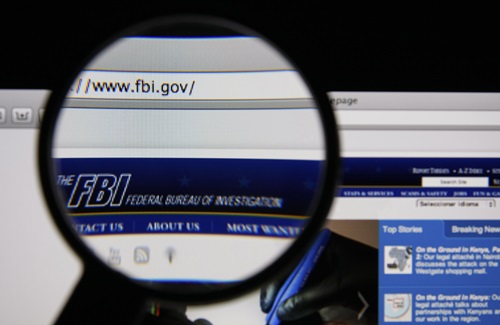
Photo © Ig0rzh | Dreamstime.com
One of the attractions of travel tournaments is the ability to take teams to new destinations and to play in nice new surroundings. Unfortunately, the growing attraction can be targeted by unscrupulous individuals, as one team, as well as family members and spectators, are discovering.
When news first broke last month that in Virginia, the George Mason University men’s basketball team might have been scammed into booking a series of exhibition games in the Bahamas, comparisons to the Fyre Festival abounded.
For those needing a review, that 2017 luxury music festival (which never happened) was shrouded in fraud, spawned at least eight lawsuits, landed the organizer in prison and led to a pair of documentary films.
And while GMU’s team isn’t seeing that level of problems, it still feels like it has been taken for a ride – without ever leaving the airport. Here’s what happened, according to Sportico:
George Mason had contracted with The VII Group, a Georgia-based sports promoter and event operator that previously arranged foreign college basketball team trips for other schools. GMU paid The VII Group about $160,000 for a five-day, four-night trip to Nassau, from Aug. 8-12, which was supposed to feature two exhibition games against local club or pro teams and island excursions such as a catamaran ride.
In addition to the team’s 30-person travel party, The VII Group had also organized a package through a third-party travel agency for GMU fans and donors to come along and “cheer on the Patriots in paradise.”
The VII Group was founded in 2019 and has previously received positive press coverage via such media outlets as Forbes.com and ShoutoutAtlanta.com.
On Aug. 12, The VII Group announced the cancellation of what it called a “foreign tour.” In a statement, the company apologized, accepted full responsibility and cited “unforeseen circumstances” that prevented it from fulfilling its responsibilities.
“We understand the magnitude of this cancelation and the ripple effects it has caused,” the statement continued. “The impact on the student-athletes, who have spent months preparing for this experience, cannot be overstated. The coaching staff, who have worked tirelessly to plan and coordinate this opportunity, deserve better. Furthermore, we recognize the disappointment this has caused to the families, boosters, donors, and the entire Green Coat Society, all of whom have invested their time, resources, and unwavering support in the program.”
University officials said GMU “is extremely disappointed” and “is working to … secure a full refund for those directly impacted.”

In the weeks that followed this unfortunate turn of events, Sportico reported that the FBI’s Washington Field Office was in touch with GMU’s athletic department “when the school says it discovered its airline and hotel accommodations had not been secured.”
Here’s more from the sports business site’s Sept. 11 report:
The extent of the FBI’s current involvement in the matter is not known. As per bureau policy, a spokesperson declined to confirm or deny the existence of an investigation, and a GMU athletic department spokesperson would only refer to the school’s previous announcement. The FBI’s contact with GMU was revealed in correspondence obtained by Sportico through a public records request. …
GMU and The George Mason University Foundation signed the agreement with The VII Group on April 3. According to a copy of the contract obtained by Sportico, the foundation was responsible for making an initial payment to The VII Group equaling 35% of the tour cost, ($55,914.60) with the remaining balance due by late May. The contract stipulated that in the event The VII Group cancelled the tour, it would refund payments made aside from the Foundation’s “original deposit,” which was deemed non-refundable.
Records show GMU athletic officials held a Zoom call with The VII Group on July 24 and, by the start of last month, were still preparing as if the trip were a go.
However, late in the morning of Aug. 7, [GMU athletic director Marvin] Lewis emailed [The VII Group’s owner Christopher] Williams accusing The VII Group of being in breach of the trip contract and demanding full compensation of three payments it had been required to make by noon that day. A few hours later — and less than 24 hours before the team’s scheduled departure date to the Bahamas — Lewis followed up with an additional message to Williams demanding the “full return of all payment” and “damages for the costs incurred due to the inability to fulfill the agreement.”
Subsequent emails indicate that Lewis and Williams spoke the following morning, in which Williams acknowledged his company’s inability to fulfill the contract.
But that was too little, too late for the team. According to WJLA.com, “some GMU student-athletes were already at the airport when they discovered nothing had been booked — no flights, no hotels and no games.”
While there are always recommendations to purchase travel insurance, coverage may vary based on the specific policy and provider in cases of fraud (or suspected fraud), vendor bankruptcy or other actions. As always, it is advisable to explore beforehand the terms and conditions of any travel insurance policy and consult with the insurance provider in order to fully understand the scope of coverage, particularly concerning fraud and financial issues involving travel agents or trip promoters.
To be clear: What happened at GMU is an exception to the rule – which is that sports tourism is made up of honest and trustworthy companies committed to providing top-notch experiences to athletes, families and fans. But the recent headlines may have more teams vetting tournaments and organizers (as well as their insurance policies) before booking.

